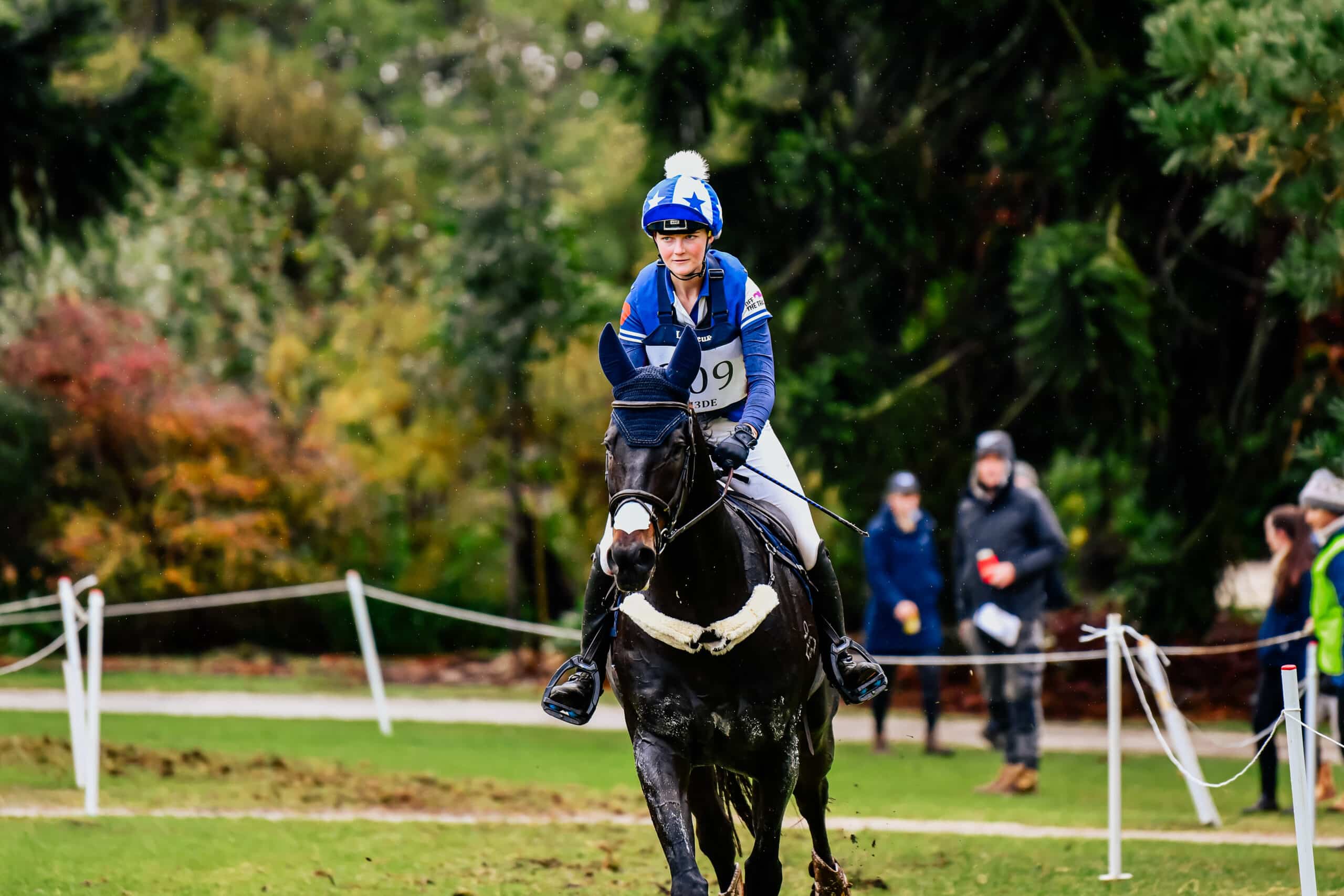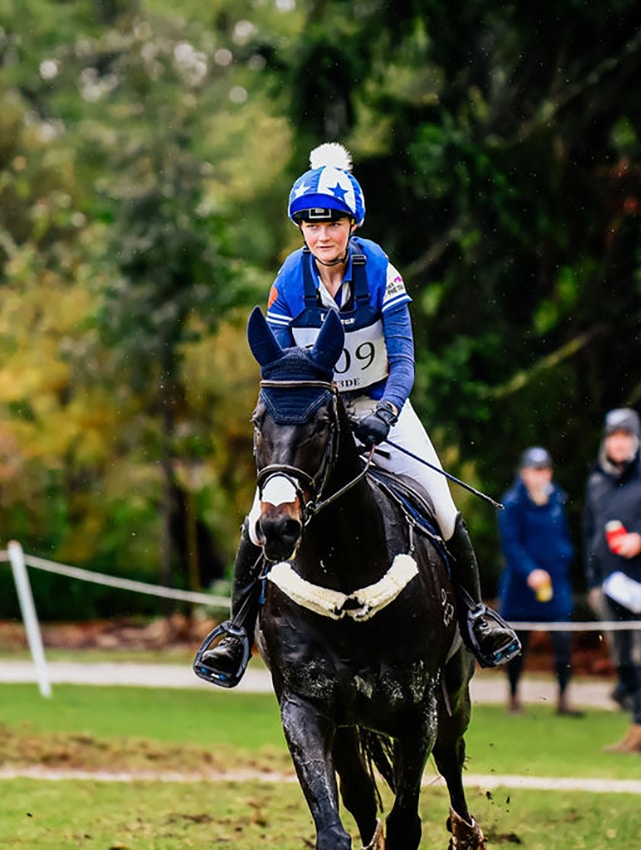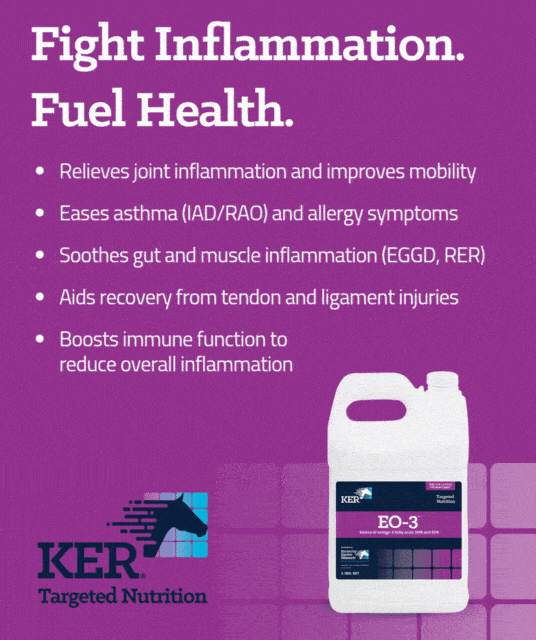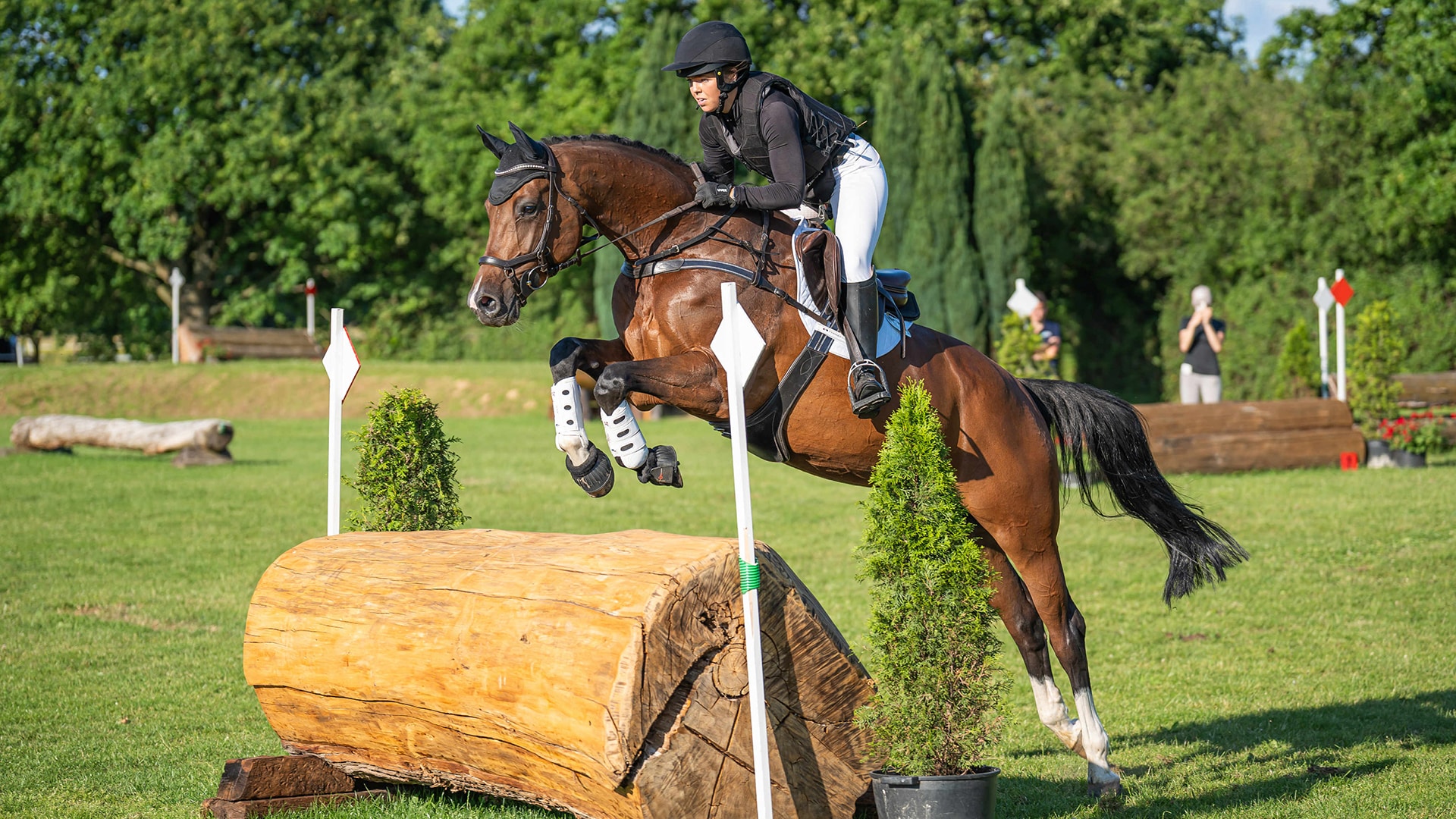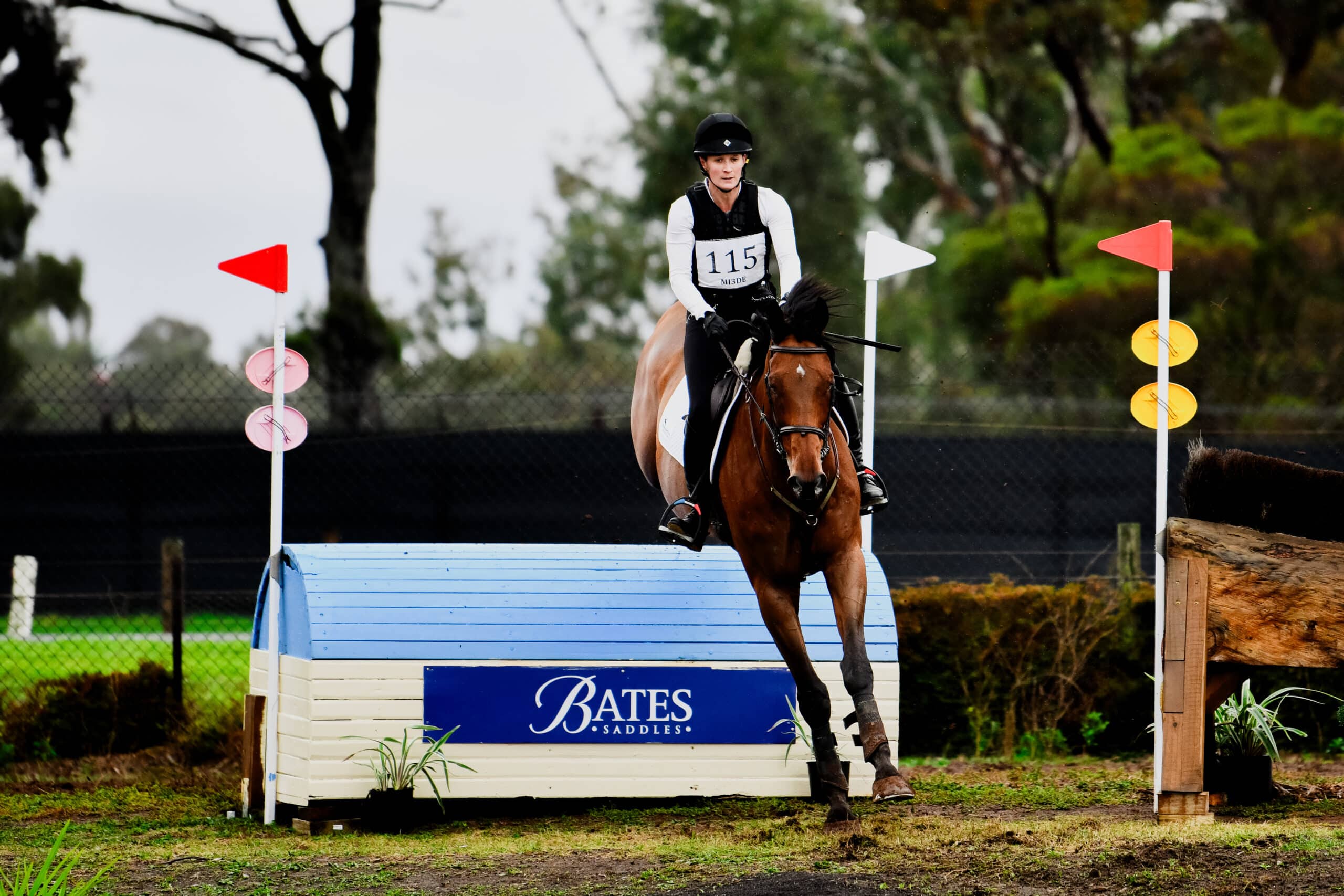When Sonja Johnson set out from Western Australia to take on the world stage, there was no clear path laid before her. No road map or trail. So, she made one herself. Now she is creating a path for the whole state to follow.
It was never going to be easy for West Australian eventer Sonja Johnson to make the leap from her family’s farm at Albany, Western Australia, to the international stage of eventing. Making your own way is hard enough — but doing it while competing against the world’s best makes it an even bigger challenge.
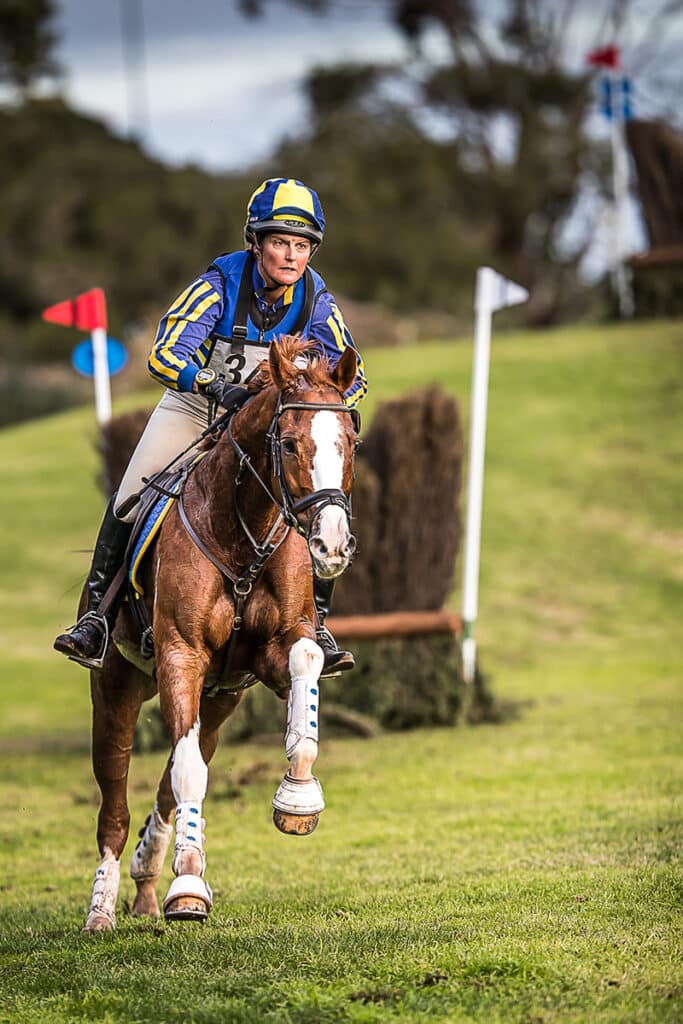
Sonja Johnson and Parkiarrup Illicit Liaison competing at MI3DE in 2016. Image by Stephen Mowbray.
“It was very difficult to do what I did. It was the hard way,” the 2008 Olympic silver medallist reflects. “Many people told me, ‘You’ll have to leave WA and go east — you can’t do it from here’.” But that kind of thinking underestimates the grit of a WA eventer. “Don’t say ‘can’t’ to a West Aussie!” laughs Sonja.
It’s that same fierce determination that inspired Sonja to think about the future generations of West Australian eventers coming through the ranks who might also be told they’d need to leave home to succeed. Instead of accepting that, she chose to lead the way and draw on her own experiences to create the pathway she never had, and others were ready to follow.
“Don’t say ‘can’t’
to a West Aussie!”
One of those supporters that joined the endeavour early on was Ruth Ellis, a passionate volunteer who had already been giving her time to the sport. About six years ago, while sitting on the WA Eventing Committee, Ruth noticed a gap. “Nothing was really happening with the squads,” she recalls. So, she teamed up with Sonja to build a new program for WA’s Eventing Squads. With contrasting but complementary strengths, their partnership quickly took shape. “I come up with all these mad ideas,” Sonja laughs, “some of them a little nefarious — and then I handball them to Ruth and she makes them happen.”
Years of elite competition and international training meant Sonja had built a network of world-class coaches with many of them considered good friends. She began reaching out to those connections, convincing them to come west and share their knowledge with WA’s riders.
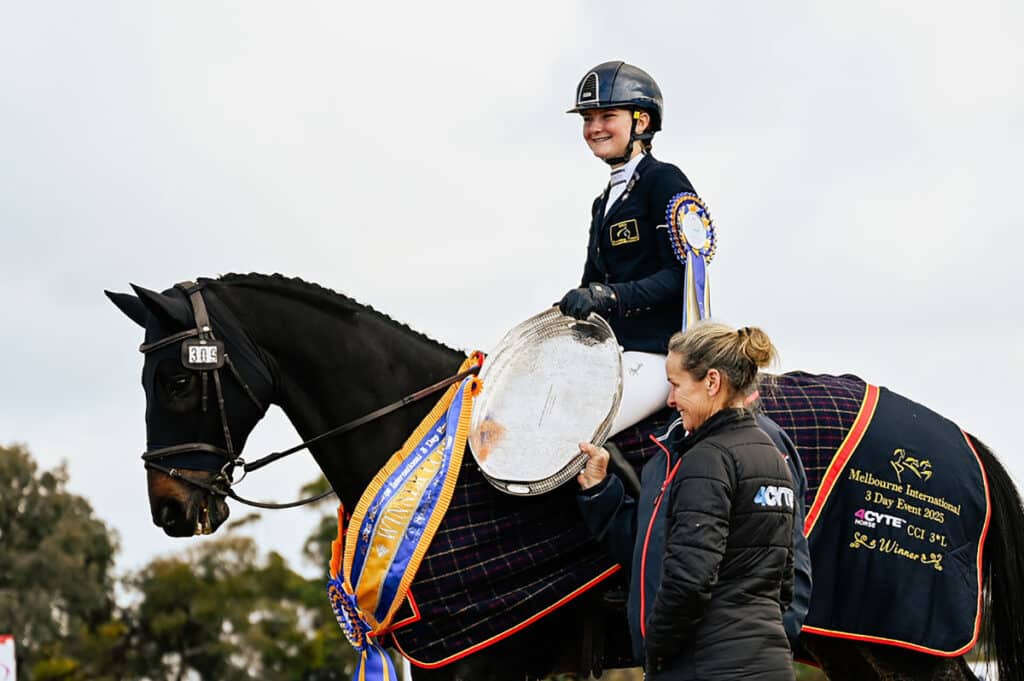
Charlee Morton-Sharp, pictured here after winning the CCI3*L at MI3DE with SV Supermaxi, is a WA Development Squad member. Image by Click Capture.
Bringing top coaches to WA isn’t easy or cheap. “It’s expensive to travel west, even from the east coast let alone from overseas,” says Sonja. But Ruth is a wizard with logistics and budgets. “Ruth runs a tight ship financially,” Sonja adds, “and where there’s a will, Ruth finds a way.” To make each visit worthwhile, they organise clinics and masterclasses open to the wider equestrian community. These not only raise crucial funds but spread the benefit beyond the squads to other disciplines. When Chris Bartle visited, a single masterclass raised $17,000 — all of which was distributed to FEI-level event organising committees in WA.
This funding is vital, especially for squad riders chasing four-star qualifications without having to travel east. “Running high-level events is expensive, and we’re doing it for relatively few riders,” Ruth says. “But we have some amazing athletes who actively seek sponsorships and funding, and pass that support directly to event committees. It’s an expensive exercise, but riders are very grateful and they realise how much it costs; they will raise the money themselves to have a four-star run.”
FROM ELITE TO THE BRUMBIES
As the elite programs took form, Sonja and Ruth recognised another need: nurturing and developing the next generation of eventers. “The younger riders weren’t coming into the system early enough,” Sonja says. That led to the creation of the Brumbies Squad — a fourth addition to the WA Eventing Squads designed for riders under 21, with qualifications at one-star level.
To qualify, riders must already hold three national-level MERs (minimum eligibility requirements), ensuring that entry “is performance-based and driven”. For State, Recognition, and Development squads, FEI MERs are required. “We’re very discerning,” Sonja admits. “There’s some tough love, but we’re preparing them for performance-based selection in the future.”
At first, the Brumbies program went relatively unrecognised. “But once it became successful, it was,” says Sonja. Now the squad draws strong interest, with a growing pool of riders meeting the standards and earning invitations.
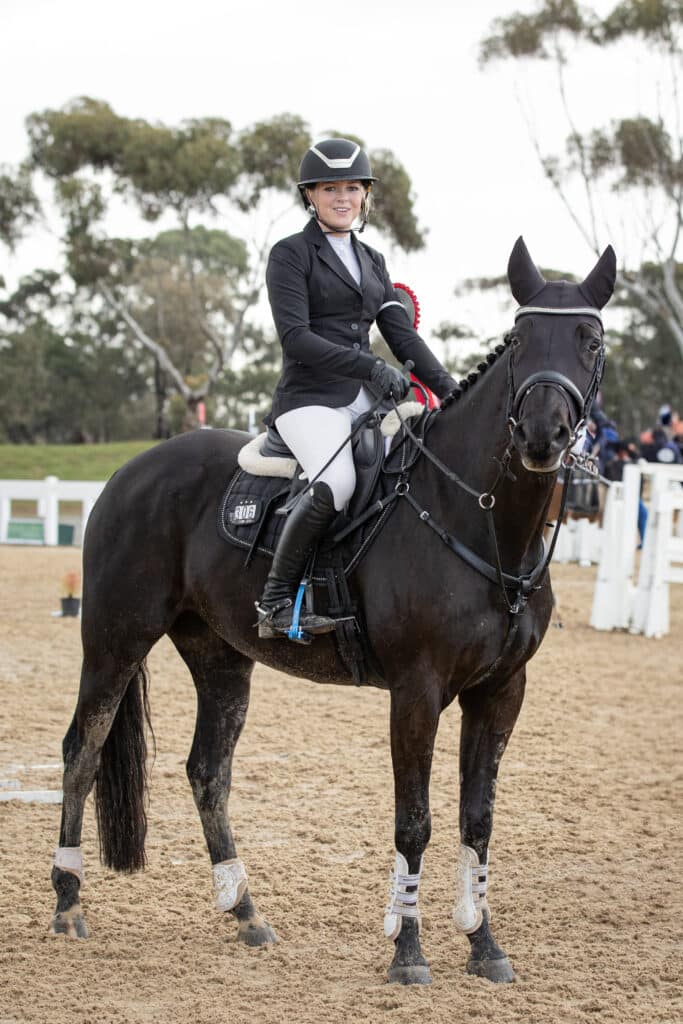
Brumbies Squad alumni Ruby Rae placed second in the CCI3*L at MI3DE with WHF Frequency. Image by Michelle Terlato Photography.
“There’s some
tough love, but we’re
preparing them…”
The results of the Brumbies Squad and its programs speak for themselves. At this year’s MI3DE, Brumbies alumni Charlee Morton-Sharp (first), Ruby Rae (second), and Ellie Gough (seventh) dominated the CCI3*L. Recognition Squad members Riley Lyall and Isobel Stevens-Menzie also placed fifth, ninth, and tenth, giving WA six of the top 10 spots in an impressive display of talent and performance.
The squad programs from which these riders hail focus not only on phase-specific training within the eventing discipline, but also on providing the opportunity to become a well-rounded horseperson. Ruth and Sonja have added “Protocol Days” to the calendar, such as unmounted sessions that include information on equine welfare, training in media interaction, and ridden sessions where combinations can replicate a competition environment and receive feedback from official judges on their dressage test and show jumping round. These have proven particularly valuable in the lead-up to major events. As with the masterclasses and clinics, the benefits of these learning opportunities extend beyond just the Eventing squad, with the Dressage, Showjumping, Carriage Driving and Vaulting squads also taking part and contributing to the sport and its wider community.
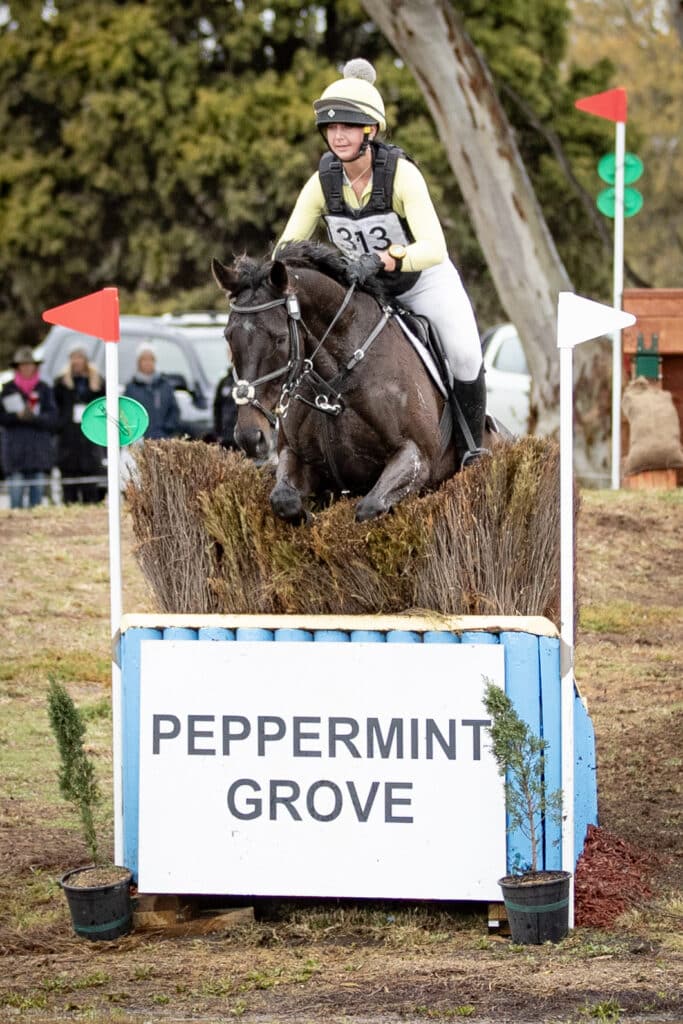
Brumbies Squad alumni Ellie Gough was seventh in the CCI3*L at MI3DE with off-the-track Thoroughbred GSH Azugo. Image by Michelle Terlato Photography.
SENSE OF COMMUNITY
It’s this sense of community that fuels not only the success, but the camaraderie of the Western Australians. “I think our community is one of the best things about WA,” Sonja says. “People band together and help each other really well.” In a state with just 12 events a year, knowing your competitors is inevitable, but knowing them as friends is essential. One day, the long road east might call. “It’s much better shared with friends.”
That ethos has drawn the support of long-time sponsors like Cheryl Campbell from Horseland Midland, who backs all four squads as well as individual riders. Bec Caslick of Perth Equine Hospital even travels at her own expense to interstate competitions to support the horses. “Having our own team vet has been an enormous help to the great success WA has had at events this year,” says Sonja. In recognition of Bec’s commitment, Glen Day of Combined Horse Transport recently offered to fund her travel for future interstate events.
The assurance of top-level veterinary care after such extensive travel is a huge reassurance to riders and their supporters and one less concern to add to a trip that is as huge in its duration as it is in its financial and emotional investment. Riders and their supporters will often work and study remotely, sometimes for months at a time. Often, there are also people who have to stay back and support from afar, as was the case for Charlee Morton Sharp, who was supported by her mum, Linda, in Werribee, while her dad, “Morty”, remained at home for work, driving his pine harvester from the plantation to the top of a hill, seeking reception in order to watch her winning round on the livestream. “It’s a huge sacrifice and investment,” says Ruth.
FRONTLINE TECHNOLOGY
To ensure this investment is as well-prepared as possible, Sonja, Ruth, and the WA Eventing community have explored every avenue in the pursuit of success. They’ve embraced new technology, science, and communication tools, such as the implementation of Sleip, an equine diagnostic mobile app for vets that uses technology and motion analysis to assess and identify lameness. They’re the first High Performance Equestrian Squad in the world to use Sleip, a clear competitive edge that shows their commitment to staying ahead.
Which is exactly what they achieved during the most recent journey east to Melbourne International 3DE. Thirteen WA combinations competed, accompanied in person by Sonja and watched by Ruth back home, who was glued to the livestream. “The whole WA equestrian community was buzzing on socials, there was so much excitement,” reflects Ruth.
As too was the WA representation at Werribee throughout the June long weekend. “As a coach, a friend, a mentor, I was so proud. My own career gave me so much pleasure, and I get the same feeling watching them now,” says Sonja.
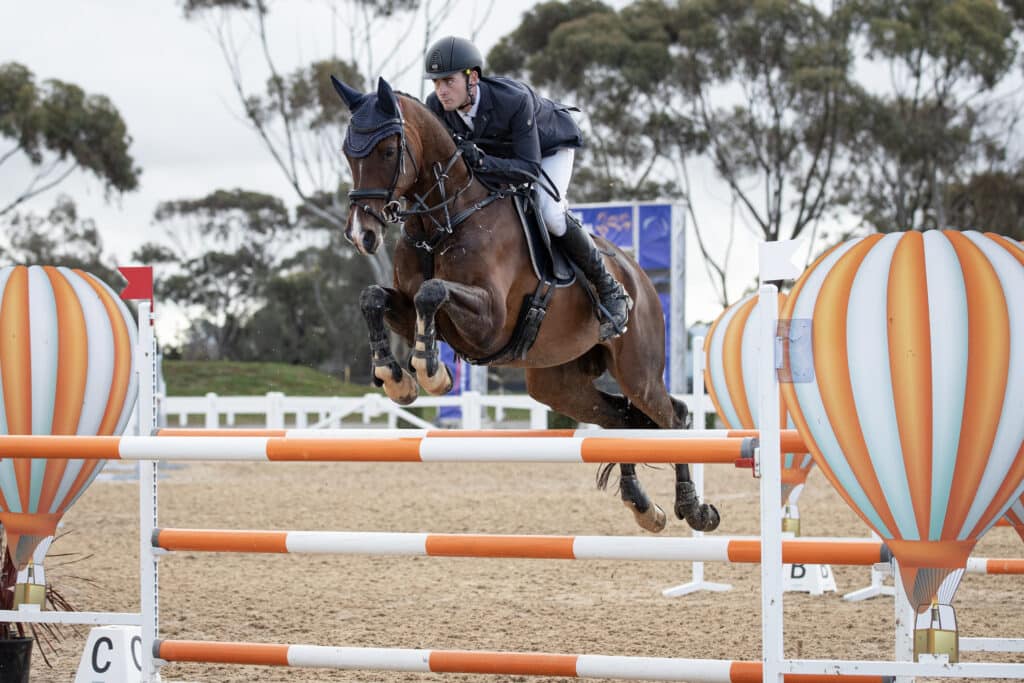
Recognition Squad member Riley Lyall was part of the WA contingent at MI3DE and performed strongly in the CCI3*L, taking fifth and tenth place with off-the-track Thoroughbred GI War Machine and GI Caramba respectively. Image by Michelle Terlato Photography.
The results delivered and the support the WA team has for each other at these major competitions has deemed the dedication and effort to the WA Eventing Squad is truly worthwhile for those who volunteer so much time to its operations. “There is such pleasure in seeing the young riders come through and how well they’ve done, knowing this funding is actively helping someone and that we have the ability to make it happen, it’s just great,” reflects Ruth.
The WA eventing scene is already thriving, and looking ahead Sonja is confident. “The future looks like it will be the most robust it’s been in some time. We often feel underestimated. But we’re comparable and competitive to the overall standard, we’re just as good and sometimes the best. We’re going to be on national teams at big events,” she says.
Never underestimate a West Aussie! EQ
